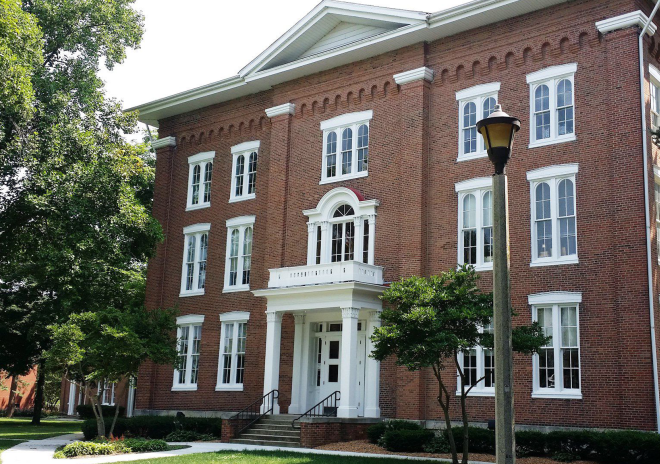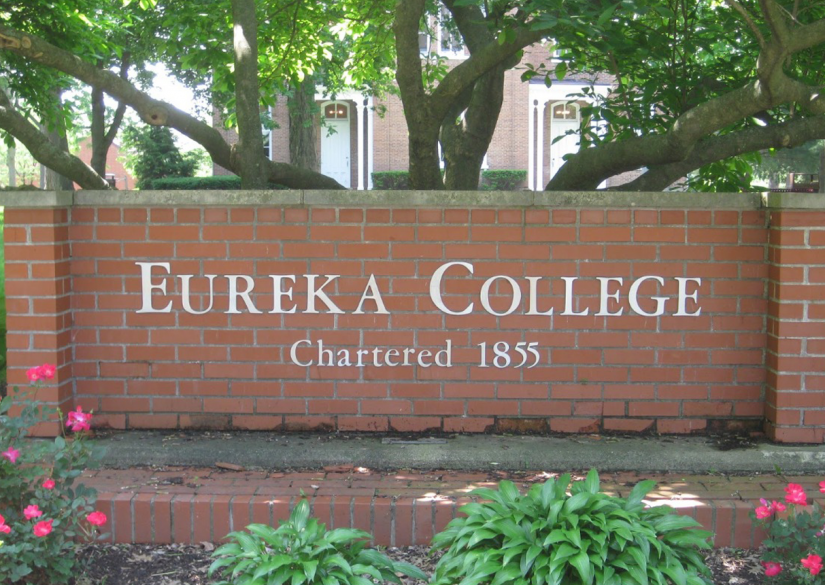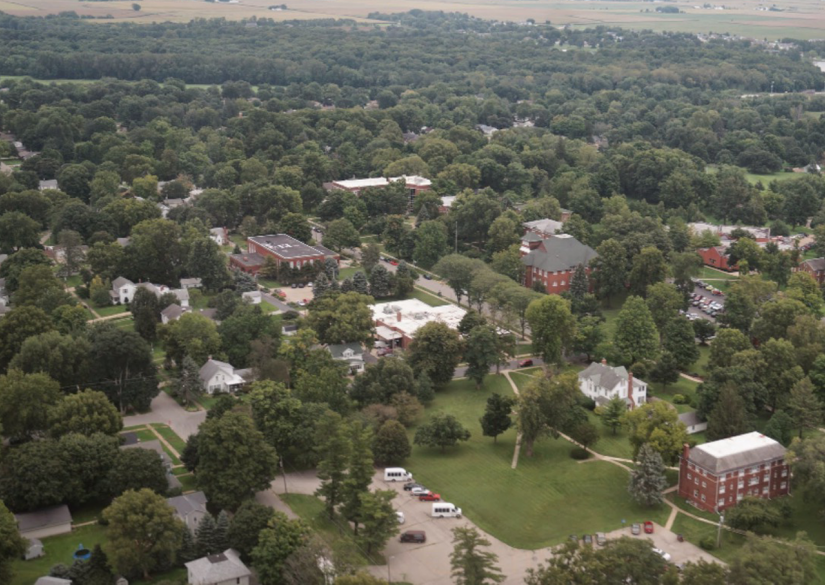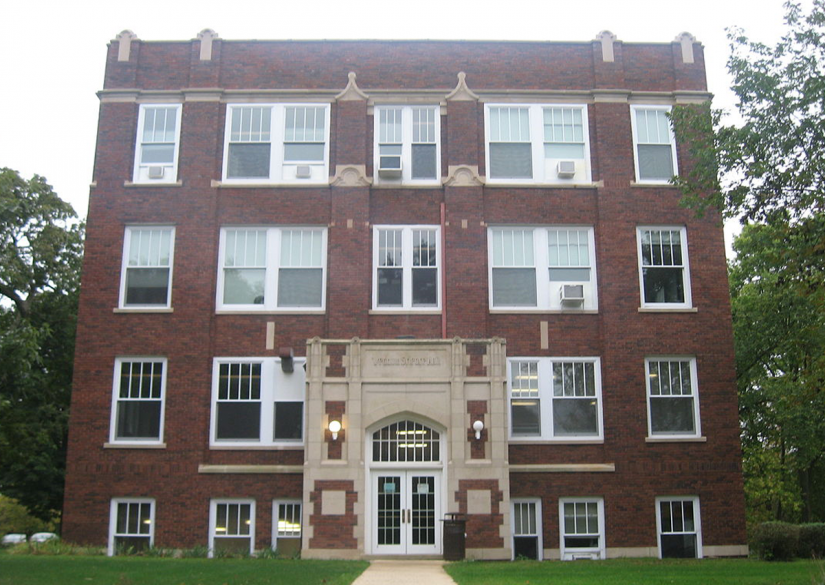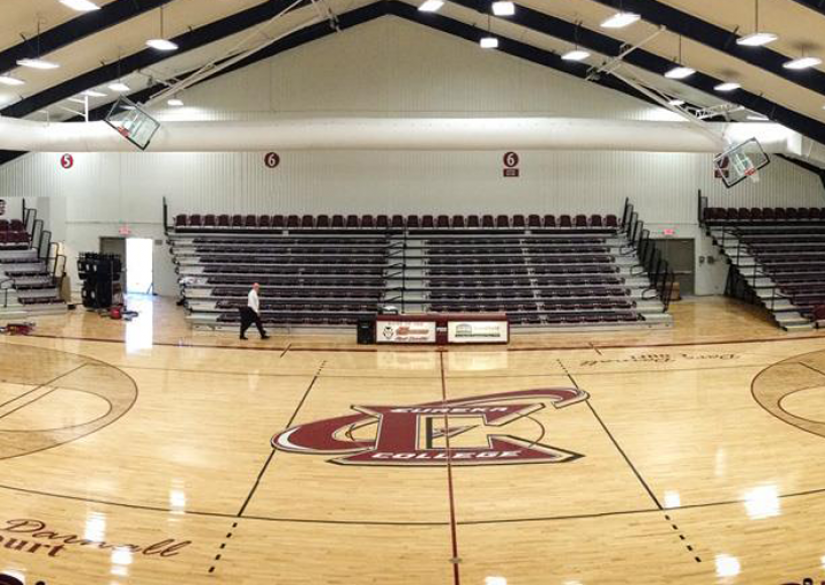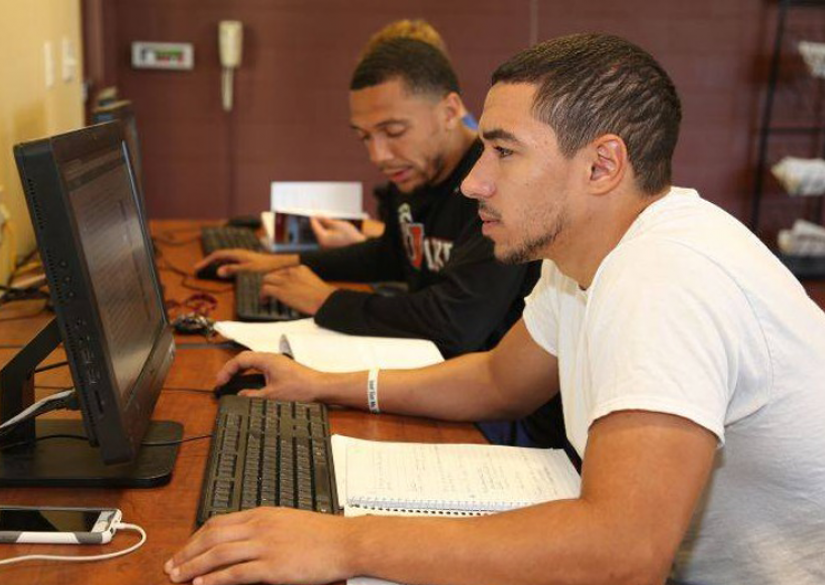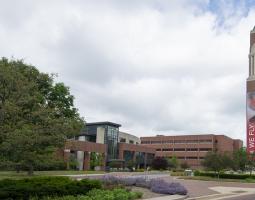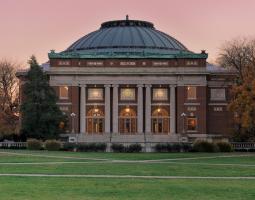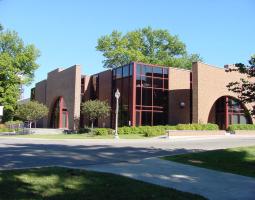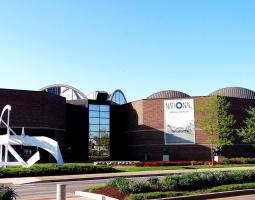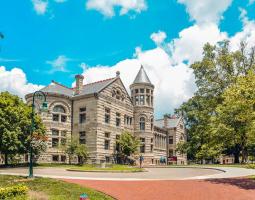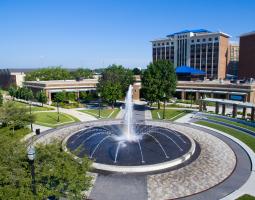Eureka College
Programs and prices, tuition fees in Eureka College
Bachelor
- Age – from 18 years
- The training period is 3-4 years.
Some specialties:
- Music education
- Teaching in the lower grades
- Digital, media design
- Art Therapy
- Art
- English Literature
- Communication
- Philosophy, religion
- Environmental studies
- Kinesiology, exercise
- Informatics
- Biology
- Religion
- Sociology, psychology
- Jurisprudence.
Pre-professional programs
- Age – from 18 years
- Duration of study – from 1 year
- The cost per credit hour with part-time employment is $ 650.
Program:
- Biology
- Chemistry
- Veterinary
- Stomatology
- Medical care
- Jurisprudence
- Music Therapy
- Art Therapy
- Social work
- Pharmacy
- Physiotherapy, nursing.
Description of Eureka College
- Location: Eureka, Illinois, USA
- Year of foundation: 1855
- Language of instruction: English
- Number of students: about 600
- Type of education: mixed.
Eureka College is a private liberal arts college affiliated with the Christian Church. Historically, this institution was the third similar institution in the United States to accept men and women on an equal basis. The college was founded in 1855 by a group of abolitionist activists who do not recognize slavery. Initially, the institution was called Walnut Grove Academy, and in 1885, merging with Eureka College, adopted a common name.
Eureka College is the smallest university in the history of America.
Accommodation, meals, prices
The college offers several residential buildings for its students.
- Alumni Court is home to mostly freshmen. The building has four two-story wings, each of which accommodates 15 students. Each floor has a seating area, a shared toilet. The dormitory also houses the Campus Center, which provides tutoring services, harrod Lounge – a large study area with access to a computer and printer, which is available to students 24 hours a day. The cost of placement for the year ranges from 4974 to 6218 $.
- Founders Court also houses freshmen. The dormitory includes Darst Hall, Dewys Hall, Ford Hall and Myers Hall: each has two small floors of 16 residents sharing a small living room and a shared toilet. Founders Court is located next to Ben Major Hall, which has a large living room with TVs, billiards, a ping-pong table, and soda vending machines. In ben Major's basement is a coffee shop, open in the evenings on weekends, as well as a large laundry room. The cost of annual accommodation: $ 4536 for a double room, $ 5670 - for a single room.
- Langston Hall is a dormitory accessible to residents interested in luxury living. Usually this building is home to many transferable students. Langston Hall consists of 3 floors, each of which is home to 20 to 26 inhabitants. The building is equipped with single rooms with their own toilets, bathrooms. On each floor of Langston Hall there is a large living room with a TV, an office and a place to communicate. In the lobby there are a couple of computers, a printer. Year of housing in Langston – 7329$.
- Gunzenhauser (Gunz) is a three-storey dormitory-suite for shared living. Each resident shares a room and bathroom with two neighbors. Each floor is home to 9 to 16 inhabitants. Common are a living room with a TV, a place for group meetings, a kitchen, soda machines. Gunz Hall also has a gas fireplace, a computer and a printer. Accommodation per year will cost $ 5525-6907.
- Arnold Hall (former Ivy Hall) is a new residential building with the most spacious rooms among others. Arnold Hall consists of 5 wings, which are home to 17 to 21 residents, including two Greek organizations. Common areas: a small living room for classes, a large room with a TV, a media room with mediascape technology, a kitchen, a dining area and additional space for relaxation. Annual accommodation: 5525-6907$.
Several meal plans with a price per semester have been prepared for students:
- A: 19 meals a week – 2705$
- B, C: 10-12 meals per week, 75-100$ extra – 2690$
- D: 8 meals per week, $150 extra – $2690.
Activities Eureka College
The institution observes several long-standing traditions:
- Ivy ceremony - since 1925, applicants at the opening of the meeting are given a sprig of ivy, which must be put in a common basket, symbolizing official membership in the college community. Ivy symbolically fuses together, forming a single vine.
- The elm is a historically important plant that existed on campus in 1860. Under the elm in 1861, students and teachers of the college gathered as volunteers to participate in the Civil War. The original elm of recruitment has long since fallen, but the tradition has taken hold for many decades.
There are many student organizations on campus. They can be divided into groups:
- Managers – make decisions for individual groups of students.
- Organizing - are engaged in the provision of programs, activities.
- Academic – students discussing individual topics, exchanging information on disciplines, career growth.
- Honor societies are groups that recognize high academic achievements, leadership qualities. The basis for them are professions or college programs (social sciences, psychology, creativity).
- Greek – national or local fraternal groups, women's communities.
- Sports - national teams participating in competitions, Spartakiads (cheerleaders, dance teams).
- Official - provide services to the campus, are engaged in raising funds for charity.
- Religious, spiritual - companies of students, collected on the basis of religious interests (Christians, Catholics, etc.).
- Hobby organizations are groups of students with the same hobbies and interests (ecology, politics, video games, literature, etc.).
Special attention is paid to sports interests. The college's national teams are known as the Red Devils, and participate at the Division II level of the National Collegiate Athletic Association (NCAA). The most attended activities on campus are game sports (baseball, basketball, football, golf, volleyball), cross-country running.
Advantages
- Student-to-teacher ratio – 13:1
- Many foreigners
- Recognized as a National Historic District by the National Park Service
- The college is closely associated with one of the presidents of the United States - Ronald Reagan, in whose honor the campus museum works.
- 12 sports teams, more than 30 student clubs and organizations
- No. 22 in the ranking of the best regional colleges in the Midwest.
Facilities and equipment at Eureka College
The college campus covers an area of 112 acres. On it are located:
- Administrative building listed on the National Register of Historic Places
- Ronald W. Reagan Museum with a collection of objects, memorabilia from his student days, donated by Reagan to the leadership of the institution
- The chapel, also listed as a U.S. historically important site
- Library, reading room
- Four-storey building with classrooms, laboratories, rest rooms
- Reagan Sports Complex: basketball court, swimming pool, gyms.
Also under the leadership of the college are dormitories, canteens and cafeterias, a medical center.
Admission dates and extra charges
The academic calendar of the institution includes two semesters: autumn and spring, as well as holidays:
- Autumn: from October 11
- Thanksgiving: November 22-26
- Winter: from December 8
- Spring: March 7-11.
The beginning of the school year usually occurs in mid-August.
Additional annual costs:
- Accommodation – from 5900$
- Meals – from 5300$
- Non-refundable registration deposit – 200$
- Fee for activities, technologies – 900$
- Returnable housing deposit – 100$
- Medical services – 15$
- Transfer – 50$
- Sports contributions – from 240 to 550$
- Student insurance – 2250$
- Other fees are about $2,000.
Entry requirements, how to apply, what is required to enrol
All applicants to the college must provide:
- Application for admission
- TOEFL or IELTS test results
- Final Diploma, Official Transcripts
- GPA on a 4-point scale
- Certificate of financial sufficiency
- Sports Information Questionnaire
- Assessment of the medical commission on the state of health
- Personal documents: passport, medical insurance, visa or residence permit, etc.
Each application is considered by the admission committee individually. Before enrollment, future students undergo entrance tests, a personal interview.
The admissions committee selects students in early August.
Scholarships Eureka College
The Ronald Reagan Fellowship Program is one of the best and unique innovative scholarship programs in the country. Several types of awards:
- Four-year scholarship for full-time study at Eureka College
- Scholarships to pay for special trips, mentoring opportunities
- Two outbound mentorings with outstanding leaders: Switzerland, Australia, Mexico, Boston, London, Hawaii, Israel, Zimbabwe.
100% of students will receive incentive assistance depending on academic performance:
- Unique Eureka Award
- College Scholars Award
- Opportunity Grant
- Residential Grant
- The amount of several grants.
International students can apply for any scholarship of the institution. Two programs have also been prepared for them:
- Colorado International Scholarship to Study Abroad
- Straw Fund scholarships that compensate for the costs of the trip.
Institution on the map
Residence permits, citizenship and other services
- Guardianship services during the studies
- Student supervision
Review about Eureka College
Recommendations on when to apply
| Language courses, schools and children's language camps | Primary and secondary education - private schools | Preparation programmes for entering universities - higher education | Higher education (after completing accredited programs A-level, IB, High School) - Bachelor, Master, MBA |
| - we recommend to apply 6-9 months before the start of the course (some camps and schools offer discounts for early booking or for lengthy study programs) - there are some very popular and high demand children's camps, where the applications need to be submitted 1 year in advance (in particular Switzerland , Great Britain , USA , Canada , Austria) | - we recommend to apply one year before the start of the training program, - some schools have a specific time frame (September-November - please specify an individual school) - some schools require tests in several stages (UKISET, internal tests of the school: English, mathematics, logics, subjects, interview, some require a personal visit) | - we recommend to apply one year before the start of the program, - for Foundation and Pathway programs, IELTS and TOEFL certificates are usually required, respectively | - recommended submission one year before the start of the program, - the deadline normally closes in January, for TOP HEIs and, as a rule, in March in other universities - for a bachelor, a Foundation or Pathway preparatory program a completed A-level, IB, High School + IELTS / TOEFL are required - for Masters you need a graduated higher education, in some cases you need a pre-Masters program - MBA requires completed higher education, work experience preferably at least 2-3 years, etc. |




